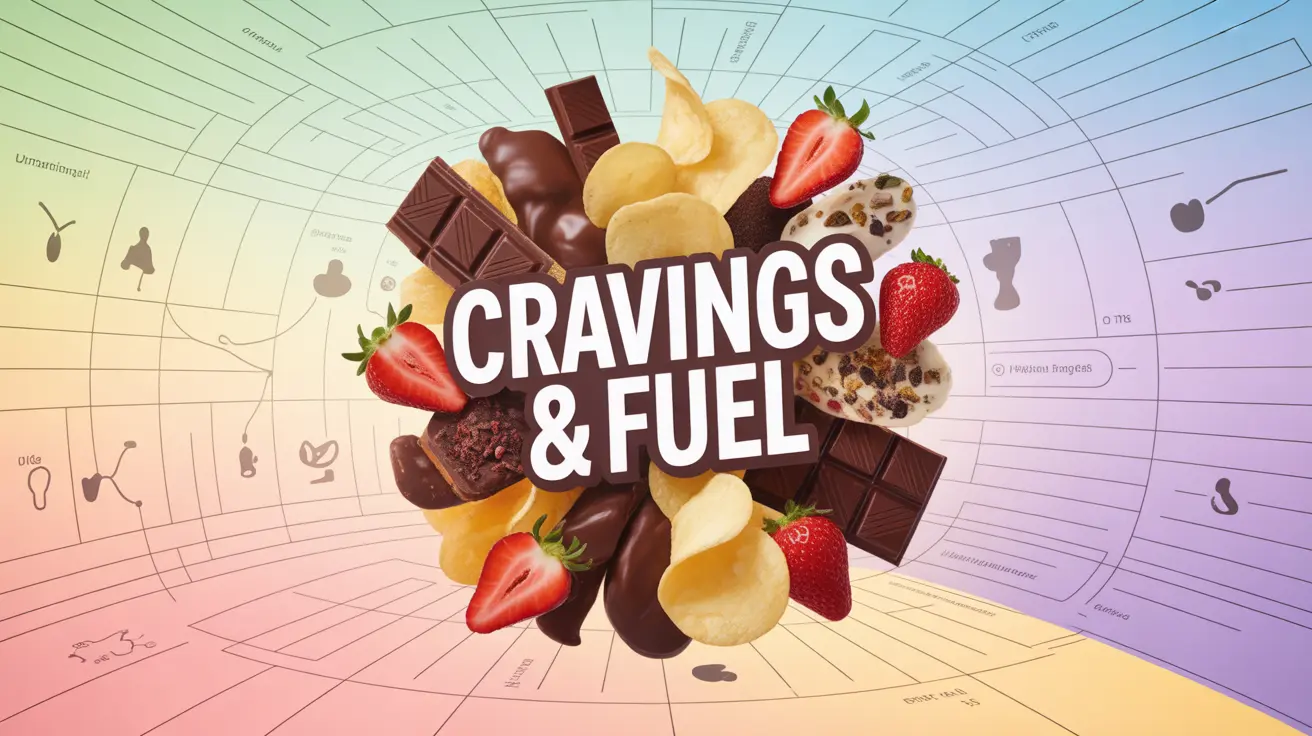Food cravings can be powerful signals from your body, often carrying important messages about your physical and emotional well-being. While these intense desires for specific foods are common, understanding what your cravings mean can provide valuable insights into your health, hormones, and lifestyle factors that might need attention.
In this comprehensive guide, we'll explore the science behind food cravings, what triggers them, and how to interpret these powerful urges in the context of your overall health.
The Science Behind Food Cravings
Food cravings are complex physiological and psychological phenomena that involve multiple areas of the brain. Unlike general hunger, cravings typically target specific foods and can be triggered by various factors, including hormonal changes, emotional states, and certain nutrient needs.
Research suggests that the brain's reward center plays a crucial role in food cravings, releasing dopamine when we consume foods we desire. This chemical response can create a cycle of craving and satisfaction that can be difficult to break.
Hormonal Influences on Cravings
Pregnancy Cravings
During pregnancy, hormonal fluctuations can significantly impact food preferences and cravings. Increased levels of hormones like estrogen and progesterone can alter taste perceptions and trigger specific food desires. These cravings might also reflect the body's increased need for certain nutrients to support fetal development.
PMS and Menstrual Cycle
Many women experience intense food cravings during their menstrual cycle, particularly in the days leading up to menstruation. These cravings often focus on carbohydrate-rich or sweet foods, which may be related to hormonal changes affecting serotonin levels and mood regulation.
Stress, Sleep, and Emotional Factors
Chronic stress and poor sleep quality can significantly impact food cravings. When stressed, the body releases cortisol, which can increase appetite and cravings for high-calorie, comfort foods. Similarly, lack of sleep can disrupt hunger hormones, leading to increased cravings for energy-dense foods.
Nutritional Deficiencies and Cravings
While not all cravings indicate nutrient deficiencies, some might be your body's way of seeking specific nutrients. For example:
- Chocolate cravings might indicate a need for magnesium
- Salt cravings could suggest mineral imbalances
- Ice cravings might signal iron deficiency
- Meat cravings could indicate protein or iron needs
Managing Food Cravings Effectively
Developing healthy strategies to manage cravings is essential for maintaining balanced nutrition and well-being. Consider these approaches:
- Practice mindful eating to distinguish between true hunger and cravings
- Maintain regular meal times to stabilize blood sugar
- Ensure adequate protein intake at each meal
- Stay well-hydrated throughout the day
- Address stress through healthy coping mechanisms
- Prioritize quality sleep
Frequently Asked Questions
What do food cravings mean and what causes them?
Food cravings can be caused by various factors, including hormonal changes, emotional states, nutrient needs, and lifestyle factors. They often represent a complex interaction between physical and psychological triggers rather than a simple nutrient deficiency.
How do hormones affect food cravings during pregnancy and PMS?
Hormonal fluctuations during pregnancy and PMS can significantly influence food cravings. Changes in estrogen and progesterone levels can alter taste preferences and trigger specific food desires, particularly for carbohydrates and sweets.
Can stress and lack of sleep increase the intensity of food cravings?
Yes, both stress and sleep deprivation can intensify food cravings. Stress hormones like cortisol can increase appetite for high-calorie foods, while poor sleep disrupts hunger-regulating hormones, leading to stronger cravings.
Are food cravings a sign of nutrient deficiencies or other health problems?
While some cravings might indicate nutrient deficiencies, not all do. Certain cravings may reflect underlying health issues or emotional needs rather than specific nutritional requirements. If concerned, consult a healthcare provider for proper evaluation.
What are effective ways to reduce or manage frequent food cravings?
Effective management strategies include maintaining regular meal times, ensuring adequate protein intake, staying hydrated, practicing stress management techniques, getting sufficient sleep, and engaging in mindful eating practices. Regular exercise and balanced nutrition can also help reduce the frequency and intensity of cravings.




